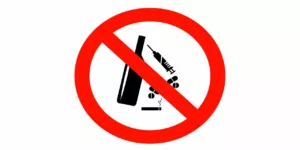What does addiction look like? For many of us, the answer is something out of a movie or a cautionary tale. Addiction, we figure, looks like people who are recognizably at “rock bottom.” Addicts live on the streets in filthy, tattered clothes. They have lost the people who once loved and cared for them. They will do anything for their next fix, and that makes them frightening and dangerous. Addicts are people with nothing left.
But this is a dangerous misconception. Addicts are among the homeless, but addicts are also in boardrooms, on college campuses, and at the local sports bar. Addicts are driving minivans and addicts are at the hip brewery. Addicts can look like people who appear to have normal or even enviable lifestyles.
Maybe you’re one of them.
Do you have a habit?
Drugs and alcohol are common in the United States and Canada. Alcohol is a cultural go-to for everything from dates to sporting events, drugs are ubiquitous in hip social scenes and high-powered business circles, and the prescriptions in our medicine cabinets have triggered a widespread crisis.
Many of the people who use alcohol and drugs don’t consider themselves addicts. And some of them are right. Some people have a beer with dinner and then stay sober for the rest of the night, and that’s just fine. But the statistics show that we’d find fewer of these people than we might like to believe. Average drinking statistics are thrown off by non-drinkers; exclude those, and you’ll find that most American drinkers are drinking too much. Things aren’t much different in Canada, and drugs can be even more addictive and more dangerous than alcohol.
It’s time to look at your lifestyle honestly. Do you have a healthy relationship with your drug of choice? Can you really “quit anytime you want to” — or even just cut back? Or is your lifestyle deeply unhealthy, and are you an addict?
Taking back control
Realizing that you have a drug problem is a tough thing, and being honest with yourself is critical. Your relatively “normal” lifestyle can be rendered unhealthy and dangerous by substance abuse, and you need to address the issue no matter how well things may be going (or may appear to be going) in your work and personal life.
Admitting that you have a problem is the first step. The second step is realizing that you don’t have to do this alone. Addiction is a disease, explain the experts at the Canadian Centre for Addictions, so treat it like one. You wouldn’t try to beat cancer without the help of a doctor and other important professionals, so don’t make that mistake with your addiction. Turn to mental health care providers who specialize in addiction. Consider rehab, 12-step programs, and other options, and work with your mental health provider to come up with a treatment plat that suits your needs.
Building a better lifestyle
If you’re an addict who doesn’t fit the stereotypes you may still have in the back of your mind, then count yourself lucky. Don’t wait for rock bottom to start making changes and improving your lifestyle. After all, rock bottom is just the turning point — if you start building a better life tomorrow, then that simply means that this is your rock bottom. Choose to do that. You deserve a happy, healthy life free of substance abuse. And while recovery won’t be easy, it’s the best investment that you can make in yourself and in your future.








